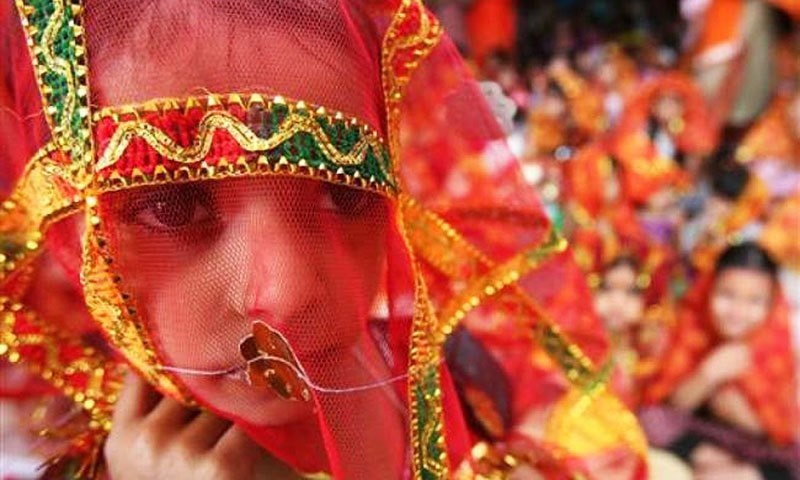News Desk
Lahore, 15 June 2024:
In a significant legislative move, the Punjab government has introduced a new law aimed at curbing child marriages through rigorous verification processes and strict penalties for violators. This follows similar efforts in Sindh, reflecting a broader push across provinces to protect minors from early and forced marriages. The Punjab Child Marriage Restraint Act, 2024, seeks to ensure that all parties entering into marriage are legally adults, reinforcing the protection of minors.
The Punjab government has introduced the Punjab Child Marriage Restraint Act, 2024, designed to prevent child marriages through strict verification processes and penalties. Under the new legislation, marriage solemnizers, union council secretaries, and marriage registrars are required to verify that both parties are at least 18 years old by checking the computerized national identity card (CNIC), passport, educational certificate, or other documents. Attested copies of these documents must accompany the marriage certificate application.
Violations or omissions of these requirements are offenses punishable under Section 6 of the Act. In case of age disputes, courts will determine the age based on birth certificates, educational certificates, or other necessary documents after a hearing. If these documents are unavailable, a medical examination will be used to determine age.
The law mandates prompt action by police and courts on reported child marriages, with the authority to intervene before the marriage takes place. Violators will face arrest under an irrevocable warrant, and family courts, with the powers of a Judicial Magistrate of the First Class, will try these cases under the Code of Criminal Procedure 1898. Convicted individuals can appeal to sessions courts.
Legal Contradictions in Pakistan’s Child Marriage Laws
Luke Victor, a lawyer, highlights significant issues in Pakistan’s judicial interpretation of child marriage laws. Despite legislative efforts through the Sindh Child Marriage Act 2013, the Federal Child Marriage Act 2019, and the Punjab Amendment 2016 to criminalize child marriage, courts frequently uphold the legality of such marriages once solemnized. This legal paradox undermines the intent of the legislation.
A notable case is the 2022 Islamabad High Court decision (PLD 28), which declared child marriage to have no legal standing and thus void. However, the decision faced immediate backlash from the Islamic Ideology Council, which issued a fatwa against it, arguing that it was illegal. This response highlights challenges in aligning religious interpretations with legal standards.
Complicating the issue further, Justice Tariq Saleem Sheikh of the Lahore High Court, while granting bail to an accused in a child marriage case, stated that marital intercourse could not be considered rape if the marriage is recognized. This contrasts with the Women Protection Act 2006, which states that consensual and non-consensual intercourse with a girl under 16 constitutes rape. Despite this provision, judicial practice often exempts marital rape from prosecution, failing to fully protect vulnerable minors.
Victor calls for urgent legislative action to resolve these contradictions. He urges Parliament to amend existing laws to unequivocally criminalize child marriage and eliminate any legal recognition of such unions. This step is essential to protect minors, uphold consistent legal standards, and ensure the judicial system aligns with the legislative intent to prevent child exploitation and abuse. Clearer laws are needed to effectively combat and eradicate child marriage in Pakistan.


